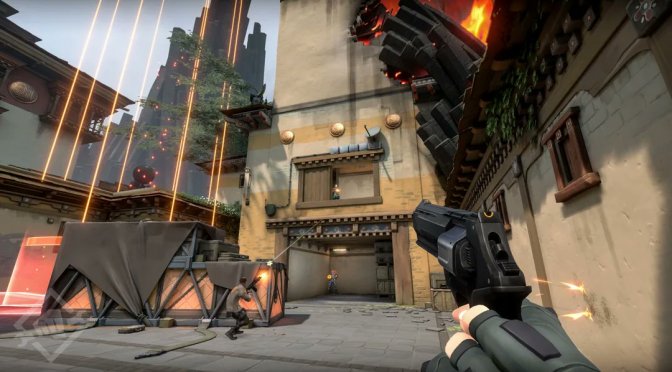Riot Games has announced the official PC system requirements for its upcoming 5v5 character-based tactical shooter, Valorant. Moreover, the team revealed that this new shooter will be coming out in Summer 2020.
According to the specs, PC gamers will need at least an Intel Core i3-370M with an Intel HD 3000 in order to run the game with 30fps. For targeting 60fps, Riot Games recommends an Intel Core i3-4150 with an NVIDIA GeForce GTX 730.
As for high framerates (144fps). Riot Games suggests using an Intel Core i5-4460 3.2GHz with an NVIDIA GeForce GTX 1050 Ti. Not only that, but the game will support both DirectX 11 and DirectX 12.
You can find the full PC system requirements for Valorant below.
Minimum specs (30 FPS)
- Processor: Intel Core i3-370M
- Graphics card: Intel HD 3000
- Memory: 6 GB RAM
- DirectX: version 11
- Operating System: Windows 8-64-bit or higher
- Disk space: 35 GB
- Additional notes: Internet connection required to play, purchases available in-game.
Recommended specs (60 FPS)
- Processor: Intel Core i3-4150
- Graphics Card: NVIDIA GeForce GTX 730
- Memory: 6 GB RAM
- DirectX: version 11
- Operating System: Windows 10-64-bit
- Disk space: 35 GB
- Additional notes: Internet connection required to play, purchases available in-game.
High-end specs (144 FPS+)
- Processor: Intel Core i5-4460 3.2GHz
- Graphics card: GTX 1050 Ti
- Memory: 8 GB RAM
- DirectX: version 12
- Operating System: Windows 10-64-bit
- Disk space: 35 GB
- Additional notes: Internet connection required to play, purchases available in-game.

John is the founder and Editor in Chief at DSOGaming. He is a PC gaming fan and highly supports the modding and indie communities. Before creating DSOGaming, John worked on numerous gaming websites. While he is a die-hard PC gamer, his gaming roots can be found on consoles. John loved – and still does – the 16-bit consoles, and considers SNES to be one of the best consoles. Still, the PC platform won him over consoles. That was mainly due to 3DFX and its iconic dedicated 3D accelerator graphics card, Voodoo 2. John has also written a higher degree thesis on the “The Evolution of PC graphics cards.”
Contact: Email

